7 Things You Need To Know About F1 Steering Wheels

Back in the day
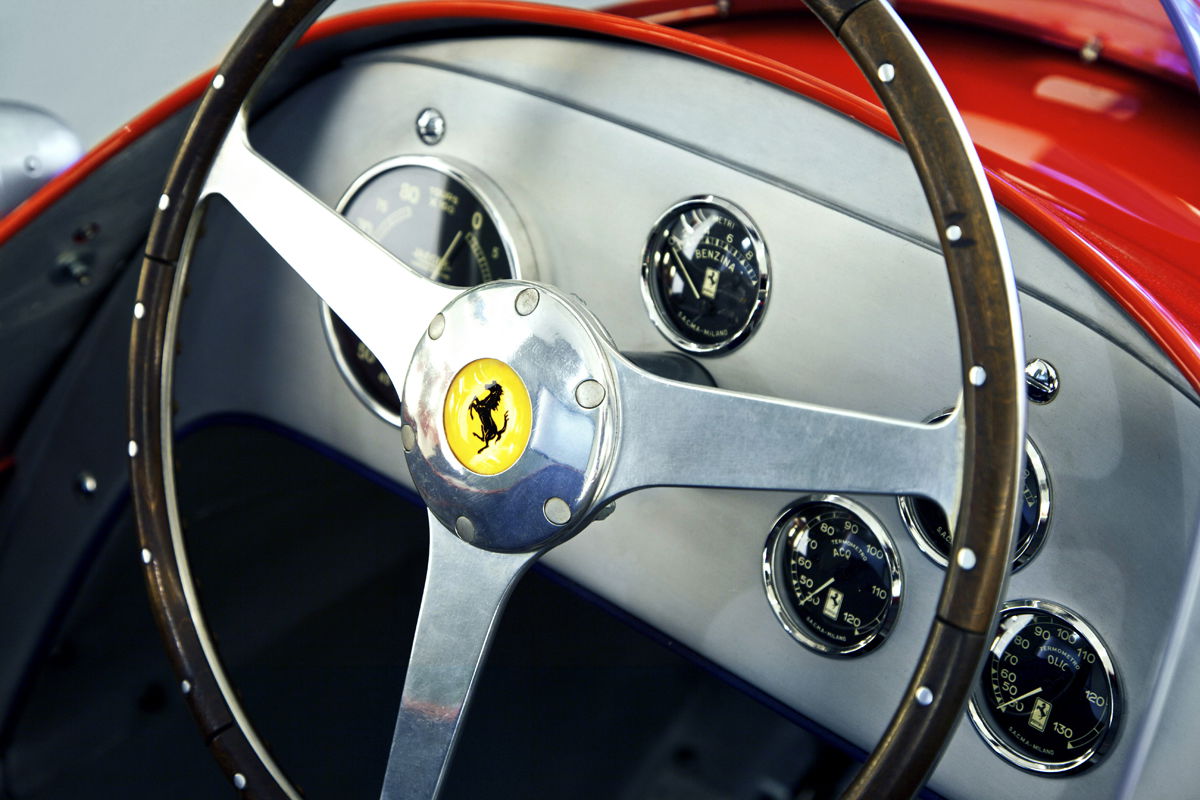
When F1 first began in 1950, steering wheels - as you’d expect - featured no buttons at all. In fact, they were made from wood and taken off normal road cars. They were designed to be as wide as possible, to reduce the effort required to turn.
Switches start to appear
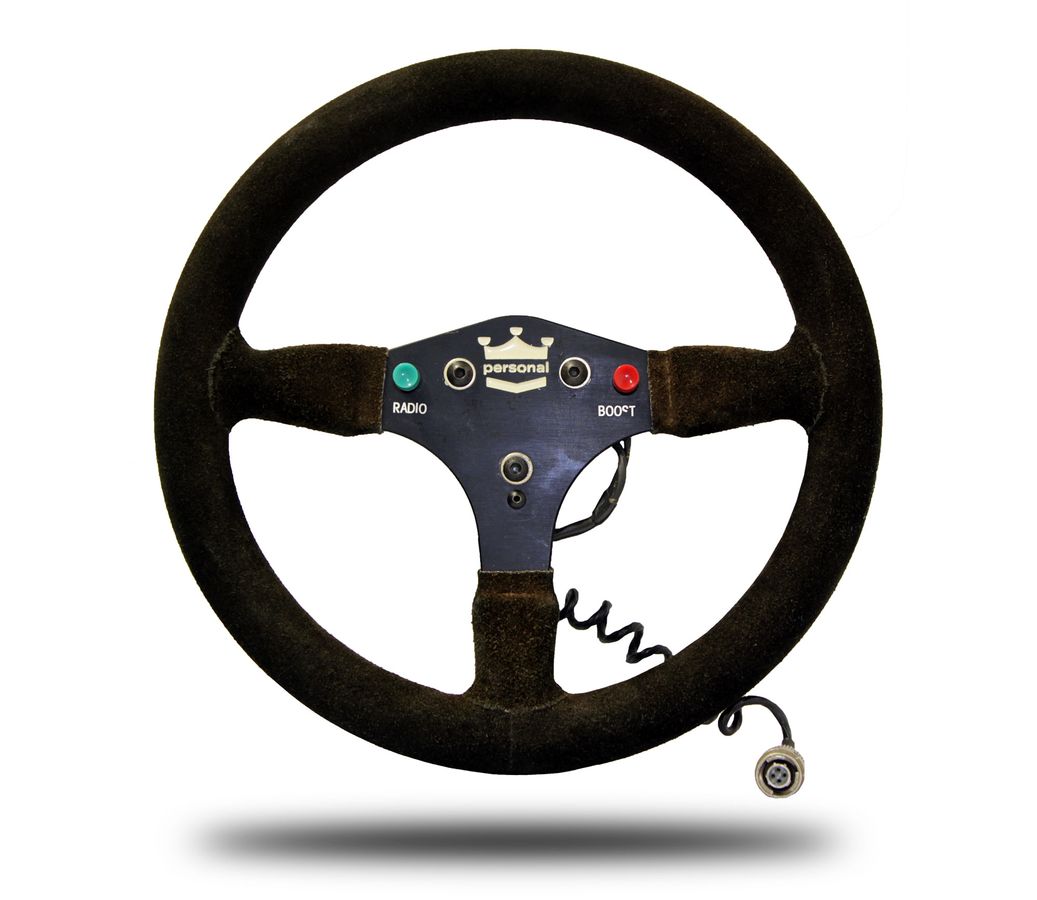
All teams were different, of course, but the first switches and buttons to appear on steering wheels in the 1970s were engine kill switches and – as technology developed – the pit radio button. Materials for the rim of the wheels also changed, with wood being replaced by leather and then suede to aid grip.
No longer round
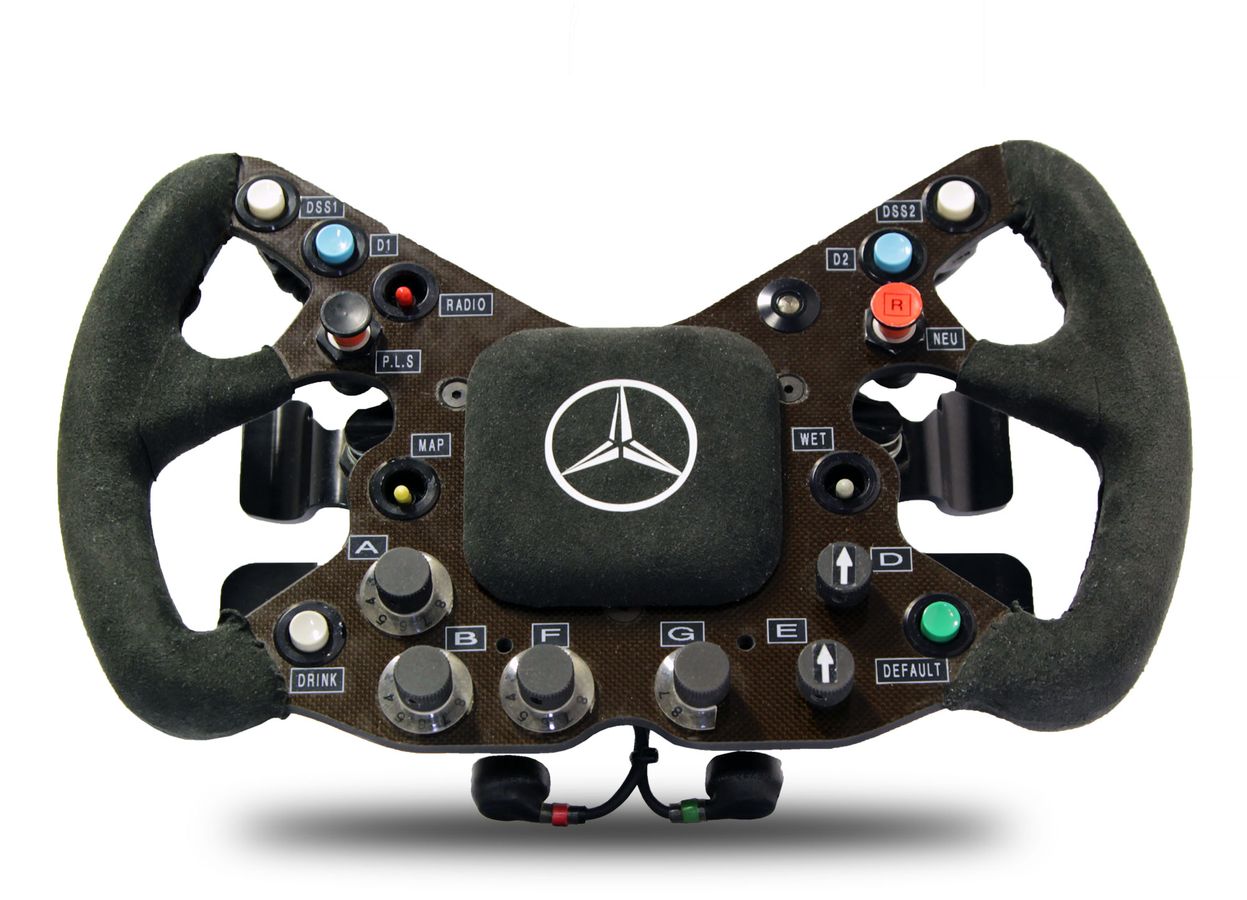
The 1990s saw cars become trickier to drive, while tech developments saw paddle shift gearboxes arrive as well as the ability to make in-car adjustments. Because of this the steering wheel shape started to change, becoming shorter in size, squarer and easier to turn. This was also to aid the use of the buttons and paddles, meaning everything was closer to the driver’s fingertips.
So. Many. Buttons.
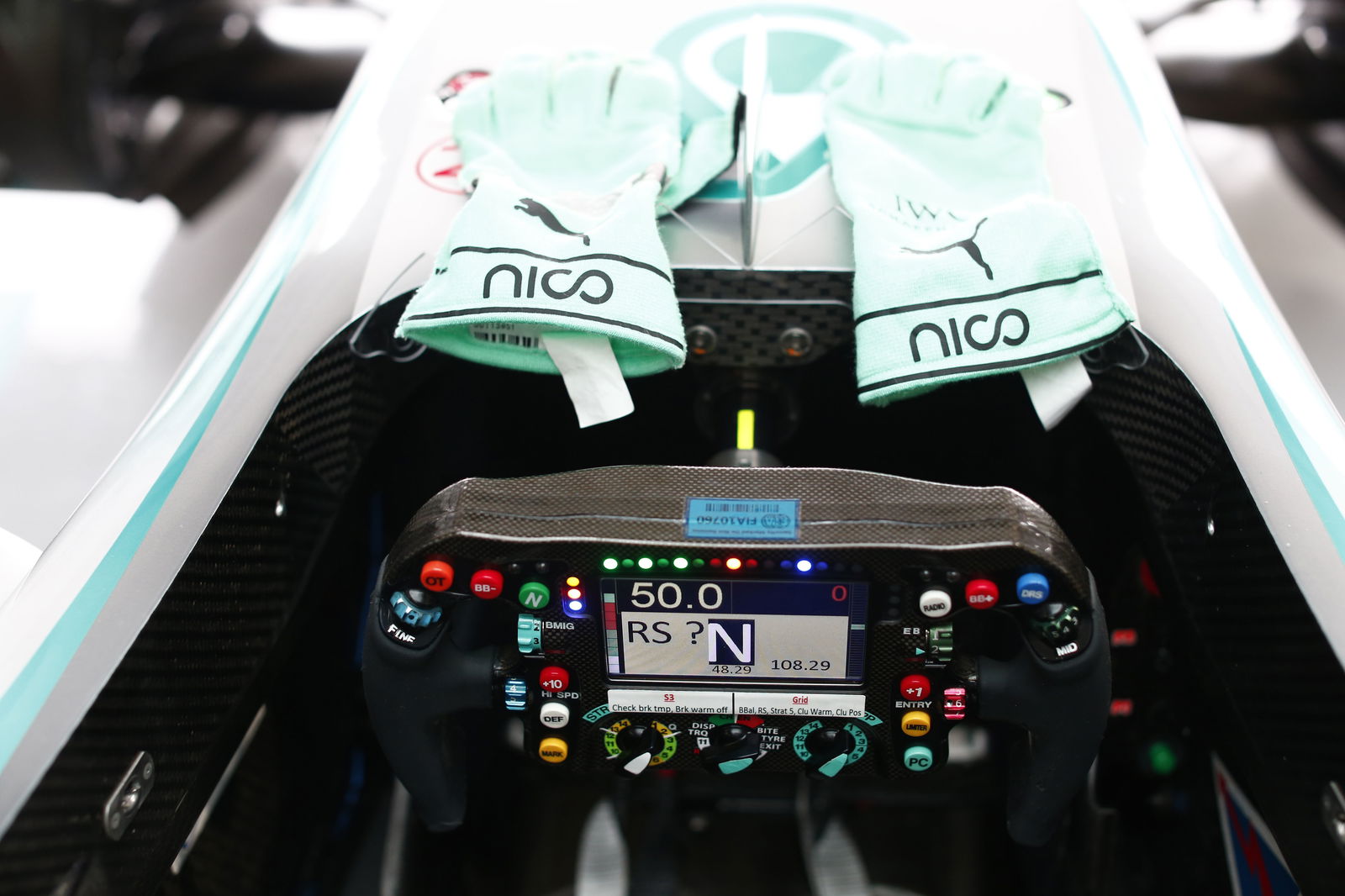
On the current grid, steering wheels are customisable, so if a driver wants a certain button in a specific place, this can be accommodated. This means no unit is the same. But as an example, the 2015 Mercedes wheel features 12 buttons on the front, six thumb wheels and three dials, as well as paddles for the clutch and gears on the back. So, a lot of things to keep an eye on!
But things become even more complicated when you factor in the dials and thumb wheels having a huge array of different functions and combinations. With all of this taking place while racing at 200mph, it’s tiring just thinking about it.
Easy release
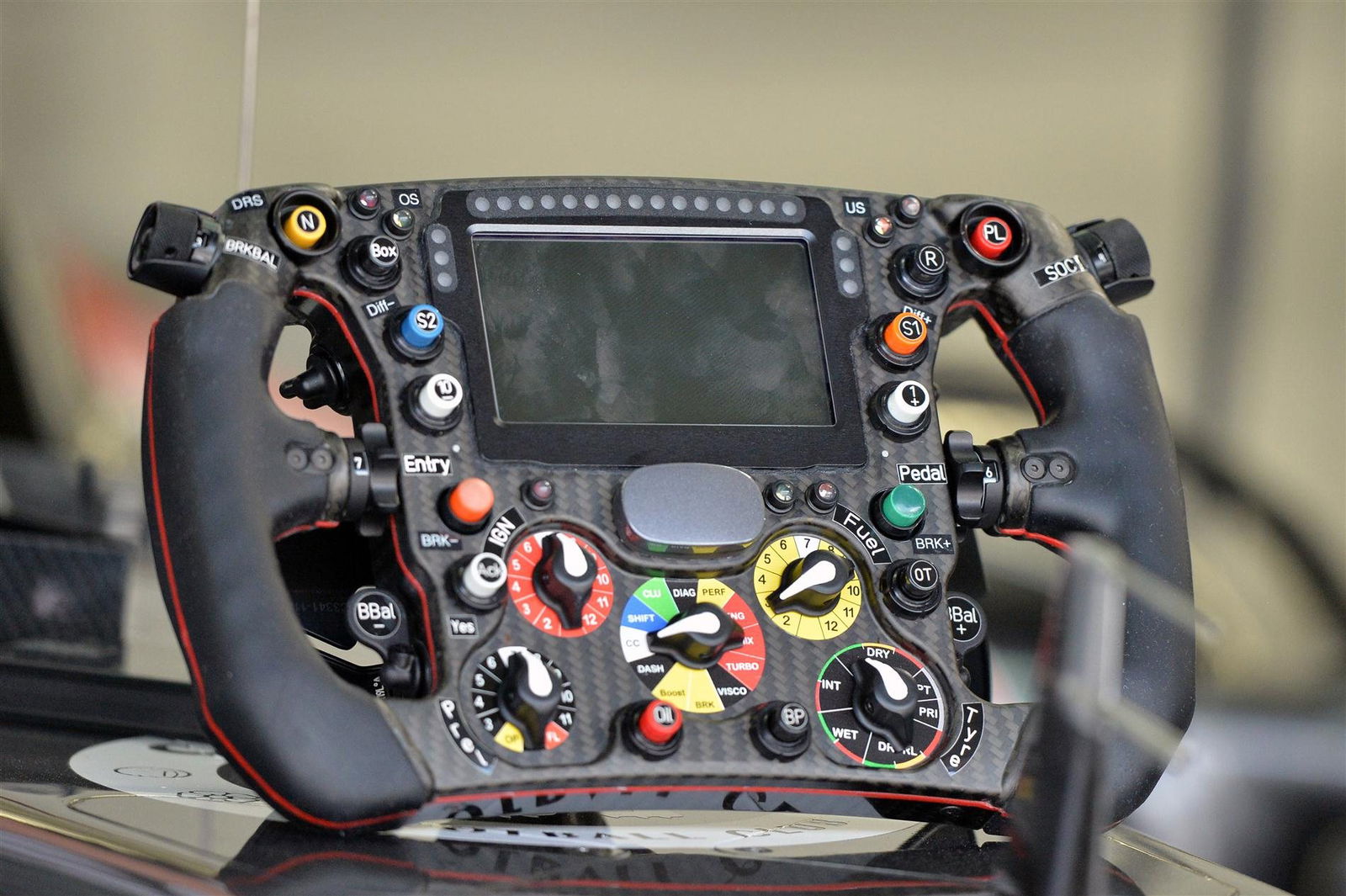
For quite a while now F1 steering wheels have required an easy release system, to enable drivers to quickly get out of the car if it is on fire or upside down. FIA regulations state a driver must be very quick at exiting the car, with just five seconds being the maximum limit. So a rapid release is extremely important.
Intricate pieces of kit
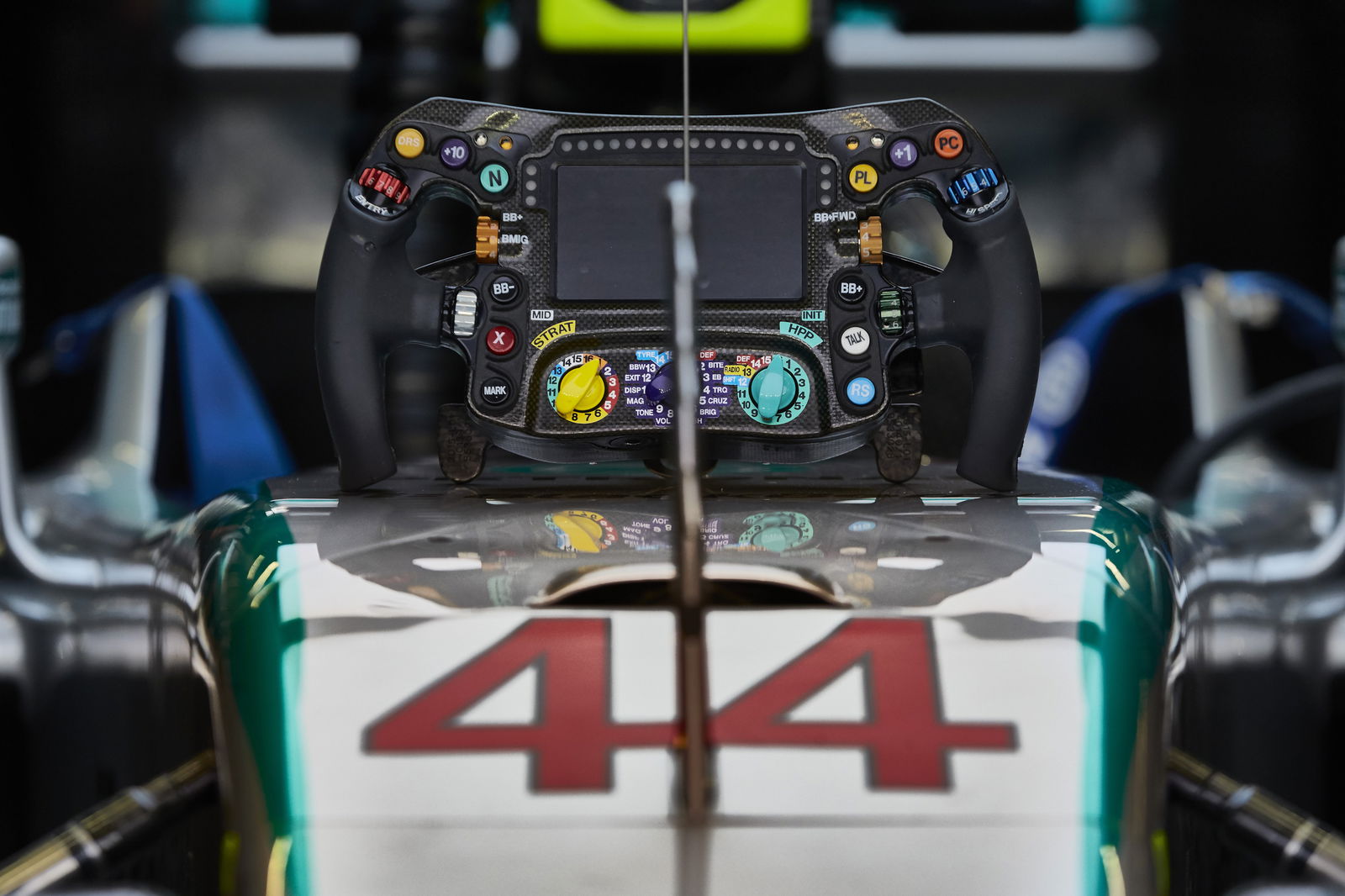
We’ve established F1 steering wheels are packed full of technology and trickery. So it is no surprise that (according to Mercedes) just one unit takes six weeks to make. Three wheels are taken to each race for the two drivers, so they get through a fair few as well. Plus, they are constantly being tweaked and refined, so the one used at the start of the season could be quite different by the end of the season.
It’s hardly surprising that modern-day F1 steering wheels can cost up to £50,000 to make (according to a report by Raconteur). So I’m sure Rubens Barrichello felt pretty bad after chucking his out of the car following his Monaco crash in 2010 (video above). It was run over by two cars and ended up a third of the way down the track at the tunnel…






Comments
i wonder what the boost button do
So many buttons!
Do they have ejecto seato button?
I remember a few years back Lotus revealed a photo of the wheel, but not wanting to give away what each button does, they had random things like call mom, hyperspeed, things like that. My favorite button that was on the wheel though was the “Jenson” Button
All i can think of when i see these wheels is that someone wanted the amount of keys on a keyboard put onto a gameboy, then they wanted the gameboy as a steering wheel.
if anyone is wondering about the function of some buttons…
Ahhh, the engine sound…
What is drink?
On the subject of steering, can somebody tell me about the different hand positions? Ive known most drivers to use 10 and 2 oclock, which is also advised for offroading, but I`ve known other drivers (e.g. GoGo Tomago and Vernon B. Sarne of Top Gear Philippines) to use 9 and 3. Can somebody explain this to me?